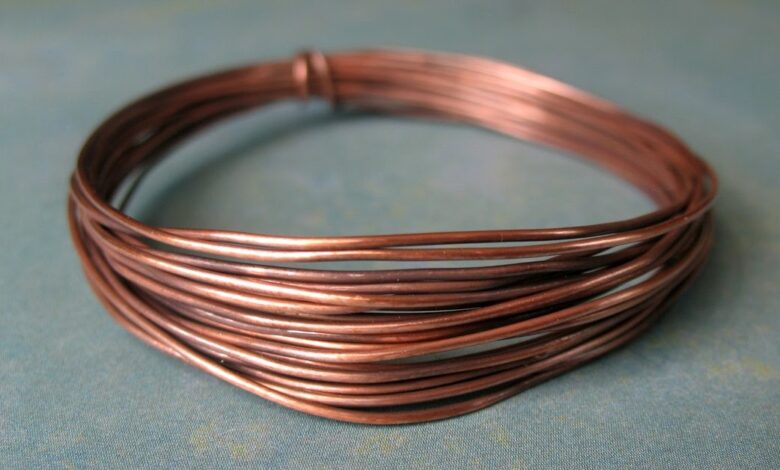Uses of Copper Wire

Copper has been the chosen material for electrical connectors for almost two centuries and became even more widespread since the telegraph and the electromagnet were invented back in the early 19th century, particularly once the telephone came along in 1876.
Copper electrical connectors remain in use today in the fields of telecommunication, distribution, transmission and power generation.
How does copper wire work?
In order for an electrical current to be able to flow through metals it is necessary for the power source to be able to combat resistivity, and the lower the level means that the metal will have even greater electrical conductivity.
Copper is a massively flexible material and while the majority of metals that try to take on large electricity loads cannot handle it, the level of thickness of copper wires is ideal to deal with these loads while retaining a great deal of manoeuvrability.
Copper is also not as oxidative as is the case with most other metals. Moisture in the air and oxygen can react with the surface of a metal, causing the metal to corrode, which is commonly referred to as rust. However copper does not rust and will instead react in a way that creates a different coating that actually protects the metal from corrosion while having no effect on conductivity.
Uses
Copper wires can be used in a wide array of different applications.
Although fibre optics have largely replaced copper wires in the field of telecommunication in order to help with the faster and better transmission of signals, the industry still does make use of copper wires in some areas.
Supplying electricity to the home and delivering it to every household appliance is a major use of copper wire, with the ductile wires being easy to bend and use wherever they are needed. Of all the metals that can conduct electricity properly, copper is also by far the least expensive.
Copper wires are also used in the automotive industry. The demand for copper wires in this industry has been massively increased with the introduction of new technology and keeps increasing by around 5% every year. Their ability to easily bend is again the reason they can be so used so easily in motor vehicles and they also have a very high melting point which means they are able to used in areas of the world that have continually changing climates.
Jewellery also makes use of copper wire. Those who love junk jewellery will already be aware of copper wire and it is also made use of as silver enamelled copper wire, which is beginning to be used as a replacement for sterling silver. The resistance to tarnishing means that an article made from it will be highly durable.
Copper wire can also be used within the deep water fishing industry because of its superior sinking rate.
Copper wires have become an essential part of everyday life both to a number of industries and ordinary people and will continue to remain so for many years to come.



